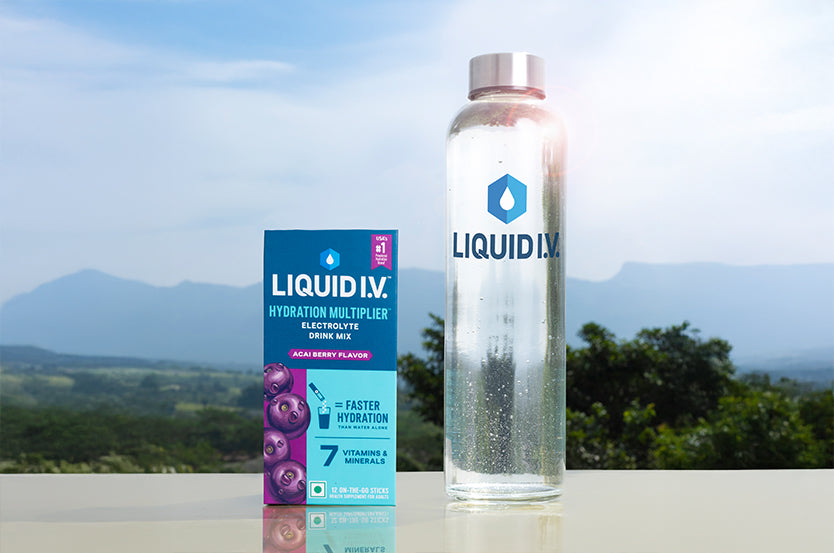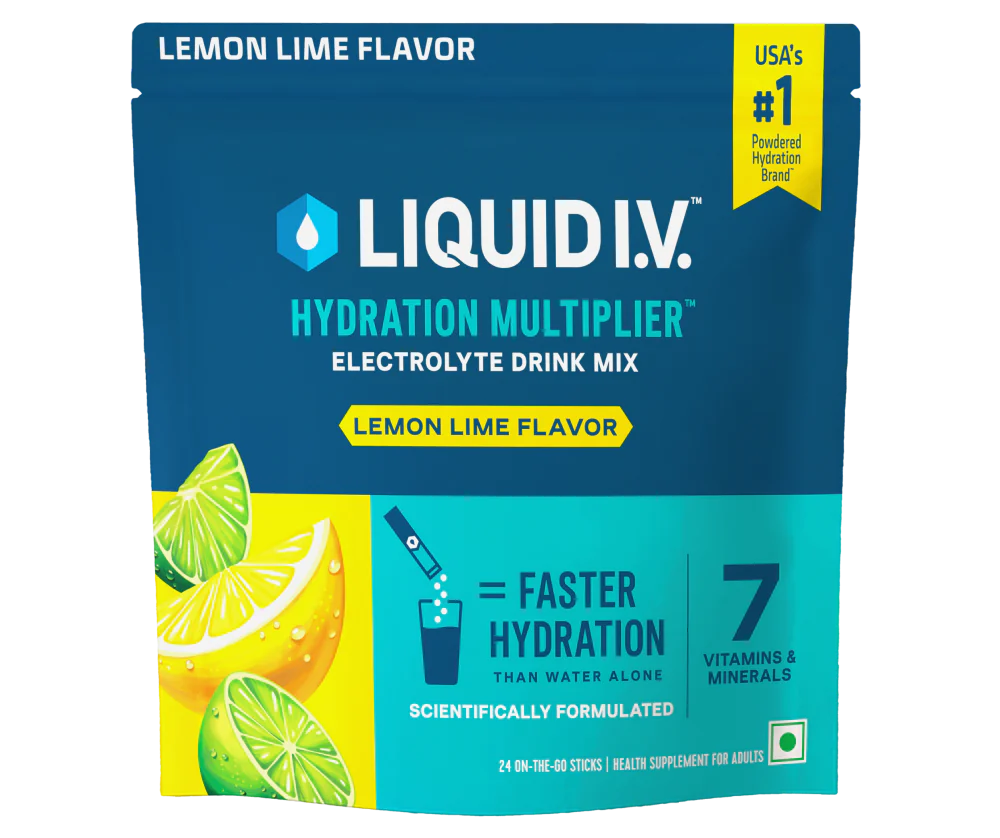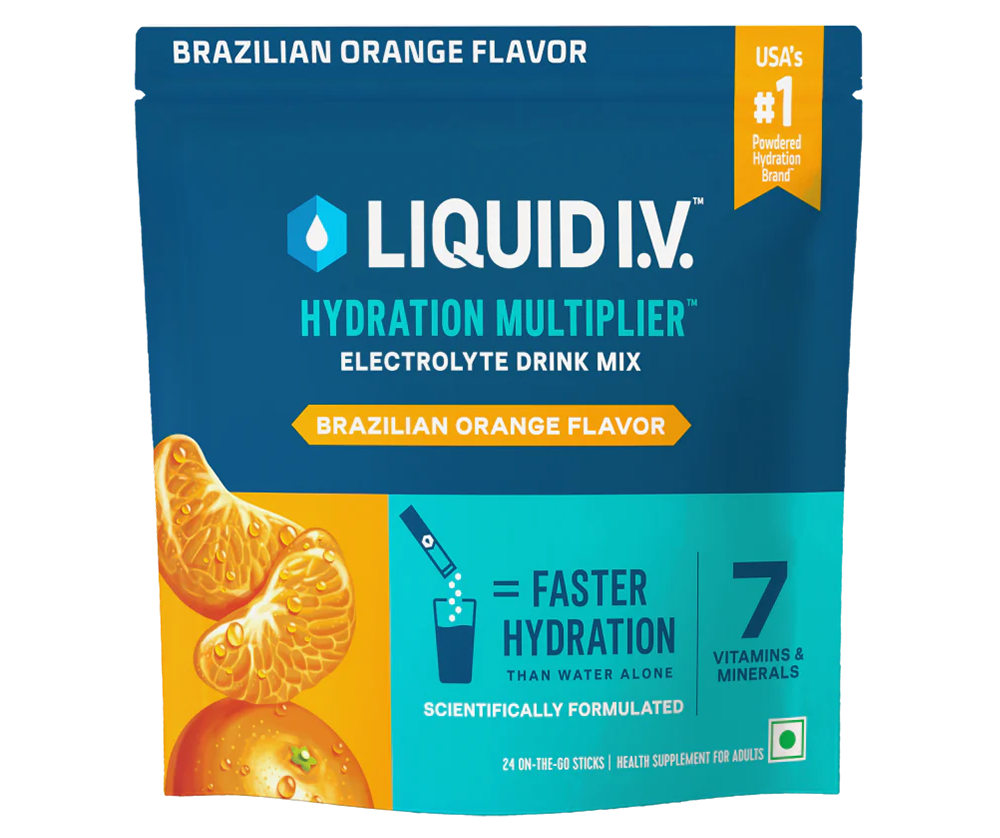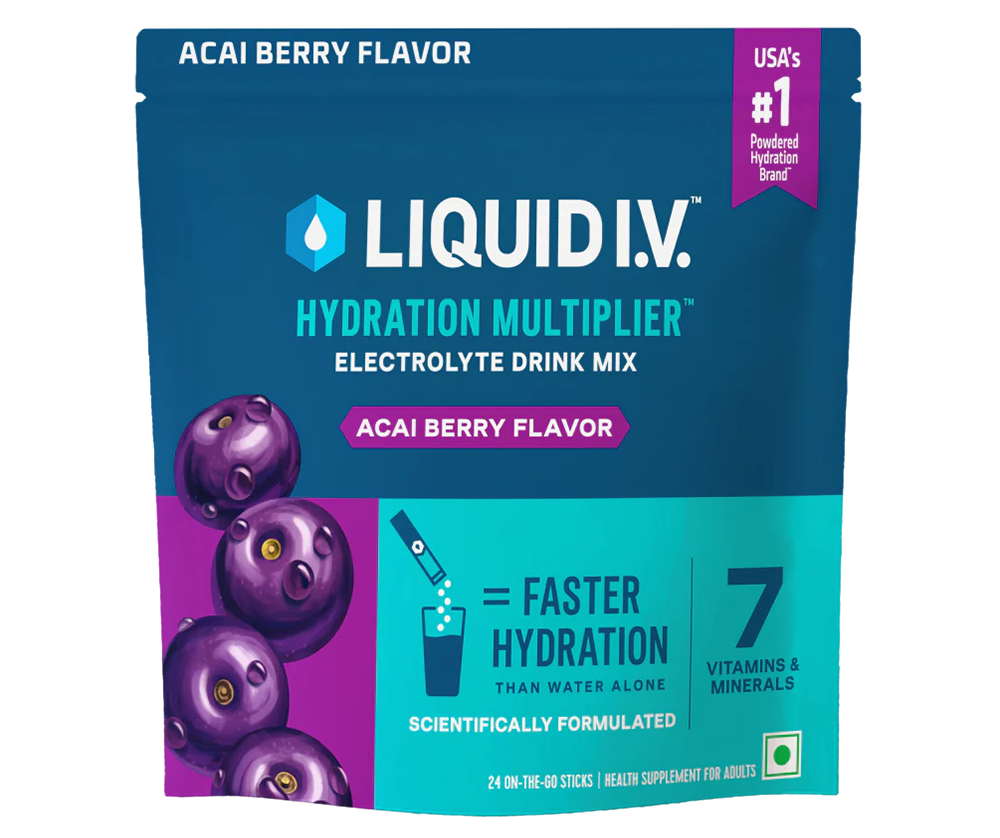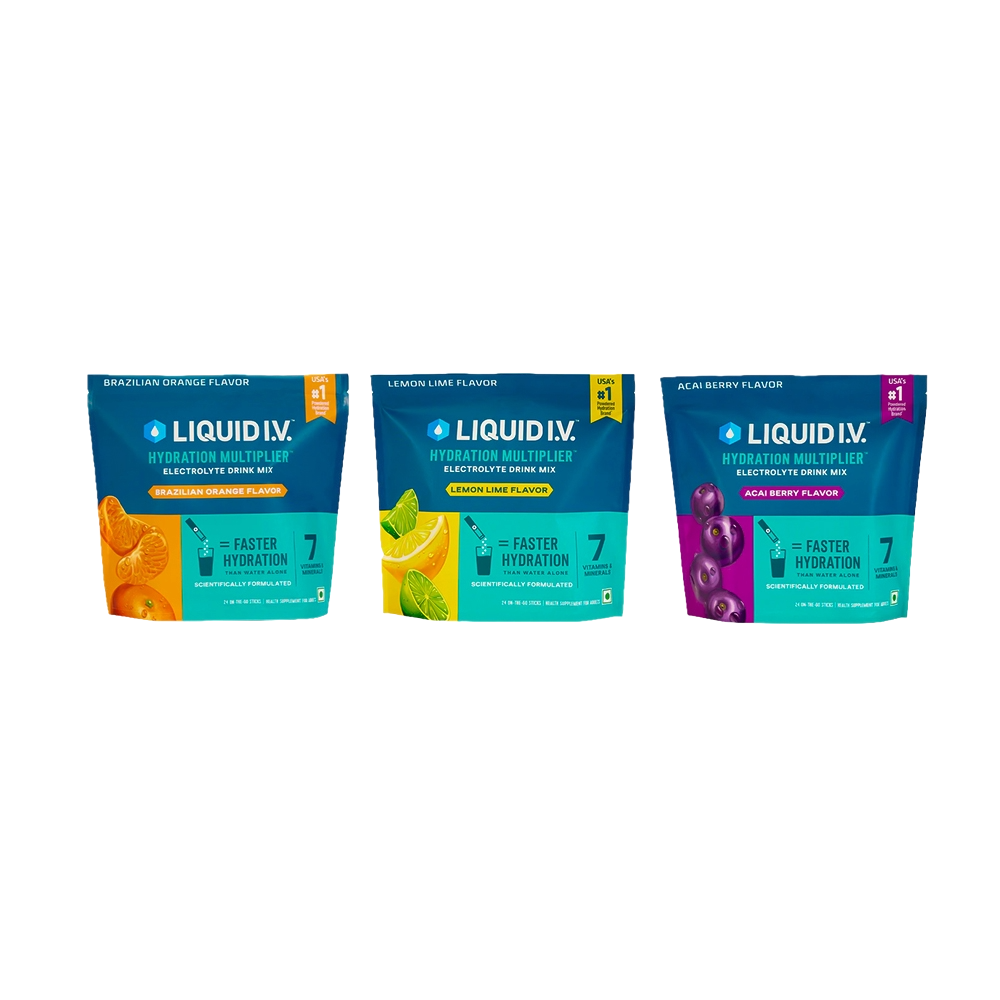Understanding electrolyte drinks – Are they right for you?
Electrolyte drinks – you’ve probably seen them in the hands of fitness enthusiasts and wellness influencers all over social media. Everyone seems to be sipping them these days. And they’re not just about staying on trend. Their benefits go beyond intense workouts. In addition to quenching your thirst, they provide your body with essential nutrients.
But what is in these drinks? And that lingering question, Do we need them, seems to keep floating around in the air. Let’s break it down to look at what these drinks are made of and what they do for our bodies.
What are electrolytes?
Electrolytes can dissolve in fluids, including body fluids such as blood, and separate into ions that conduct electricity. [1]. Some common electrolytes you’ll hear about are sodium, potassium, chloride, magnesium, calcium and bicarbonate [2]. As for what they do for our bodies, you can think of them as tiny multitaskers doing a lot behind the scenes. They help, keep water levels in check, balance the pH of body fluids, support your muscles and nerves, and even help shuttle nutrients in and wastes out of the cells. When their levels are out of balance, both physical and cognitive performance of the body can take a big hit [2].
Do you need electrolytes drinks?
Under normal circumstances, when you are not running marathons or spending long hours in the sun, you can probably get all the minerals your body needs from everyday meals and regular fluid intake. This includes a glass of refreshing coconut water, fruits and veggies, and even dairy [3]
All these can help your body absorb and retain fluids better. However, including these as part of your daily diet is not always easy. This is where electrolyte drinks can come in handy. Whether you are travelling, having a busy day, or simply taking time to recharge, a well-formulated electrolytic drink can give your body the hydration it needs.
These drinks become especially more important in conditions where your body loses more water than it is taking in, for example:
- on a hot day
- after exercising
- during an illness such as vomiting or diarrhoea [4]. But always consult a doctor in moderate to severe cases
- on days when you miss out on sipping water and signs of dehydration creep in
In such situations, plain water alone may not rehydrate you effectively. Here’s the catch: not all the water you drink is retained by the body. How much is retained depends on several factors, such as outside temperature, age, body composition, physical activity status, and most importantly, the composition of the beverage itself, especially its electrolyte content [5]. That is where electrolyte drinks can give you that extra edge in rehydration.
What are electrolyte drinks?
Not all electrolyte drinks are built the same. It depends on why you are consuming them in the first place. The most basic ones usually contain an add reference:
- Water (Duh!)
- Electrolytes such as sodium, potassium, and chloride
- Carbohydrates, including sugar
- Peptides (small chains of amino acids, aka the building blocks of proteins)
You might be wondering: Why carbs and peptides, though? It turns out that sugar helps the body absorb fluids better, as referenced. According to a study, people who drank beverages that contained carbohydrates and peptides in addition to electrolytes and water, hydrated better, even in the resting state [5].
Additionally, the actual amount of each ingredient can vary depending on what the drink is meant for. An electrolyte beverage made for endurance athletes will have a very different formula from one suitable for helping medically related dehydration. For the latter, you must rush to the doctor.
What Are the Best Electrolytes Drinks?
The ideal choice of drink depends on your hydration needs and the purpose you want to fulfil.
Salt-water
Adding a pinch of salt to your water is a simple yet effective option. It can support hydration, especially when made with Himalayan or pink salt, which is less processed and contains minerals like potassium and magnesium in addition to sodium. This is particularly helpful in situations that involve excessive sweating, as it can replenish electrolytes and restore balance in the body [5].
Fruit juices
Many fruits are rich in electrolytes such as potassium, magnesium, calcium and phosphorus. Natural fruit juices, such as watermelon (rich in potassium and magnesium) or pomegranate juice, provide minerals and natural sugars that help with fluid absorption and retention. Some fruits, like watermelon, even contain amino acids, which have been shown to improve rehydration when added to electrolyte beverages. Just make sure that your juice is fresh and free from added sugars to obtain maximum benefits [6].
Coconut water
Coconut water is nature’s gift to mankind. It is a well-balanced, naturally sweet option packed with essential minerals such as sodium, potassium, and chloride. Its mild sweetness makes it easy to consume, and research has suggested that it rehydrates the body as effectively as a carbohydrate-electrolytes drink. It’s a great go-to after a morning jog or whenever you need a gentle hydration boost [7].
Sports drinks
Sports drinks are designed to help you bounce back after a rough workout. Athletes commonly use them to support endurance and recovery [8]. Other options, such as the Liquid I.V.™ Hydration Multiplier, offer faster hydration over regular water by providing a rich mix of essential nutrients that include sodium, potassium, and chloride.
Conclusion
Electrolytes play a crucial role in keeping your body running smoothly. In today’s fast-paced life, getting everything you need from regular food and fluid intake is not always easy. This is where electrolyte drinks step in. They are a convenient and effective way of rehydrating your body. All that’s left to do is find the one that suits your needs and make it a part of your routine!
FAQs
-
What is an electrolyte drink?
An electrolyte drink is a fluid that contains water and key minerals like sodium, potassium, and chloride. It is designed to restore electrolytic balance and boost hydration. -
Can I make my own electrolyte drink?
Home remedies are popular. WHO also recommends parameters that make an electrolyte drink effective [9] -
Can I replace electrolytes drinks with water?
Water alone may not be enough to provide rehydration in certain situations, especially when there is an electrolyte imbalance (e.g. excess sweating, frequent urination) [10]. Adding electrolytes to your water can support fluid absorption and retention [5].

